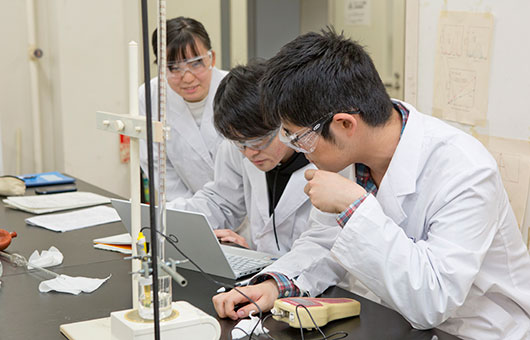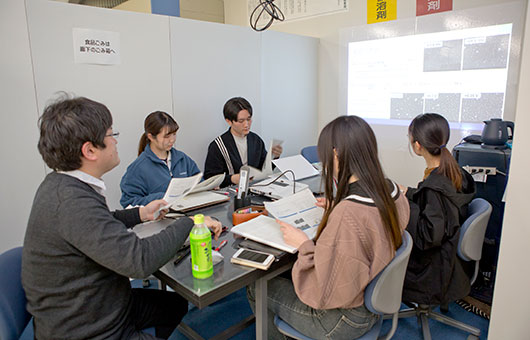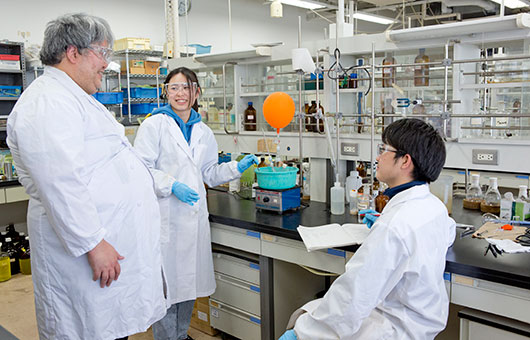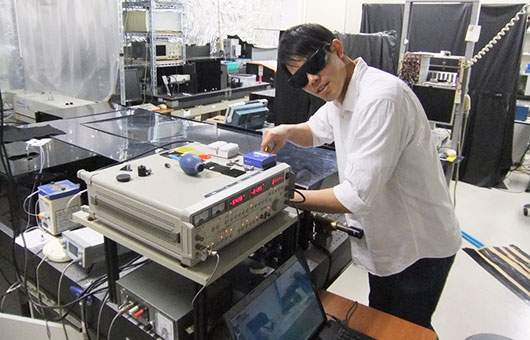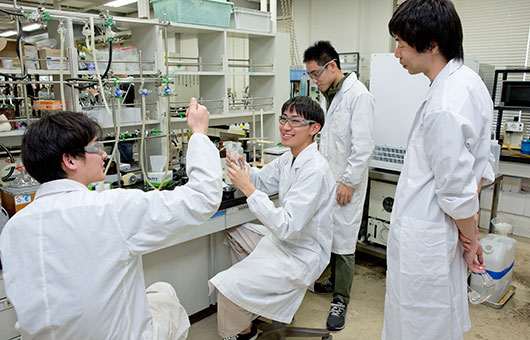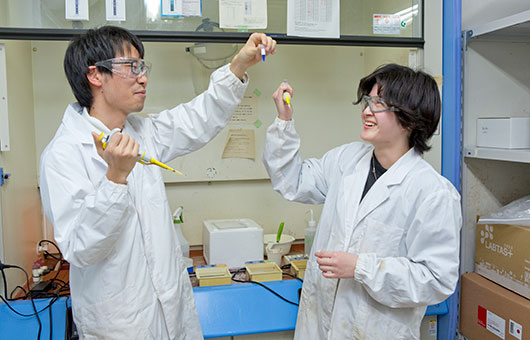Program of Chemistry 化学プログラム
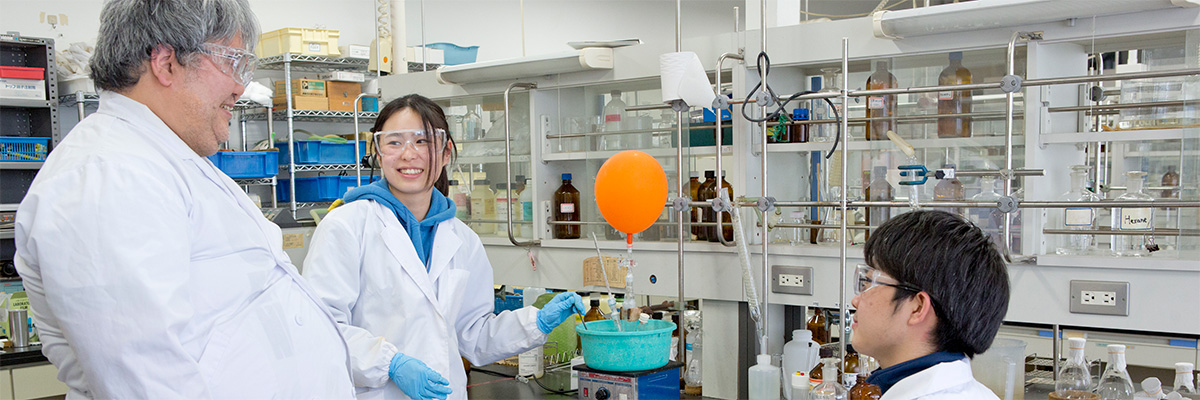
- Home
- Program of Chemistry
Everything around us is made of chemical substances—these are the objects of study in chemistry.
The subjects of modern chemistry include not only new chemical reactions, novel properties of materials, and innovative functional materials, but also the origins of life and global energy issues. Our approaches to exploring the chemical world and creating new materials span a wide range: for example, inorganic and organic chemistry, physical chemistry, and biochemistry, which cover not only advanced fields of chemistry but also interdisciplinary fields bridging physics and biology.
Join us in taking on the challenge of cutting-edge research in the Program of Chemistry that paves the way to the future.
Curriculum
First Year
Chemistry is often referred to as the “central science” because it connects and overlaps with many other scientific disciplines such as physics, biological sciences, and environmental science.
In the first year, students interested in the Program of Chemistry are encouraged to study not only chemistry but also a wide range of scientific fields.
This broad learning will provide both a solid foundation for specialized chemistry courses and a wide perspective essential for applying chemical knowledge in diverse contexts.
Second Year
Students take core required courses that form the foundation of the Program of Chemistry, including “Inorganic Chemistry,” “Quantum Chemistry,” “Organic Chemistry,” and “Biological Chemistry.”
These courses provide a balanced acquisition of the fundamental knowledge necessary for professional chemists, while helping students discover their own areas of interest.
Third Year
Lectures become elective-based, allowing students to choose advanced courses from various specialized fields such as “Chemistry of Catalysis,” “Electrochemistry,” “Organic Synthesis,” “Bioorganic Chemistry,” and “Instrumental Methods for Chemical Analysis.”
Through laboratory experiments, students also acquire fundamental experimental techniques used across major areas of chemistry.
Fourth Year
In the fourth year, students join one of nine research groups (eight laboratories plus the Hydrogen Isotope Research Center) and conduct graduation research.
Their research may involve synthesizing new molecules for the first time in the world or analyzing previously unexplained chemical phenomena—opening doors to the unknown at the frontiers of chemistry.
If you find yourself fascinated by the challenge and depth of research, we encourage you to continue into graduate school.
At that level, you will not only enjoy cutting-edge research but also gain advanced and wide-ranging expertise that will empower you to contribute to the future of Japan and the world.
Fields of Study
Photochemistry Laboratory
Using spectroscopy and computational chemistry, we study the excited states and reactions of organic–inorganic hybrid molecules and related systems.
These studies can be extended to applied research on elucidating photochemical functions and designing novel photoactive molecules.
Nanomaterials Chemistry Laboratory
We investigate the synthesis and properties of materials ranging in size from a few nanometers to several hundred nanometers.
By controlling their size and shape—intermediate between molecules and bulk materials—we develop nanomaterials with novel optical and functional properties.
Inorganic and Analytical Chemistry Laboratory
When intense laser pulses are irradiated into solutions, highly nonequilibrium states can be created.
We investigate such extreme states using methods such as laser photochemistry, scattering theory, and microscopic observation.
Coordination Chemistry Laboratory
Combining metal ions with ligands yields coordination compounds with diverse properties.
We create coordination compounds with novel structures and functions, including luminescent compounds and those capable of activating small molecules, such as carbon dioxide and oxygen.
Organic Chemistry Laboratory
Focusing on compounds such as multicomponent crystals, amorphous substances, and boron-containing compounds, we design and synthesize new functional organic molecules.
Their properties, structures, and reactivities are investigated through both experimental and theoretical approaches.
Natural Products Chemistry Laboratory
We develop novel and useful organic synthetic reactions and apply them to the total synthesis of biologically active natural products with complex structures found in nature.
Biological Function Chemistry Laboratory
Focusing on RNA molecules, which play diverse roles in biological systems, we explore new RNA functions and structures through biochemical analyses and artificial synthesis.
Organic Electrochemistry Laboratory
We design electrochemically generated reactive intermediates and develop new organic synthesis reactions that exploit their unique reactivity.
Hydrogen Isotope Research Center
We conduct research and development on safe tritium handling technologies for nuclear fusion, innovative measurement techniques, elucidation of hydrogen isotope behavior in materials, and novel methods for hydrogen production, utilization, and analysis—all contributing to the realization of a sustainable hydrogen-based society.
